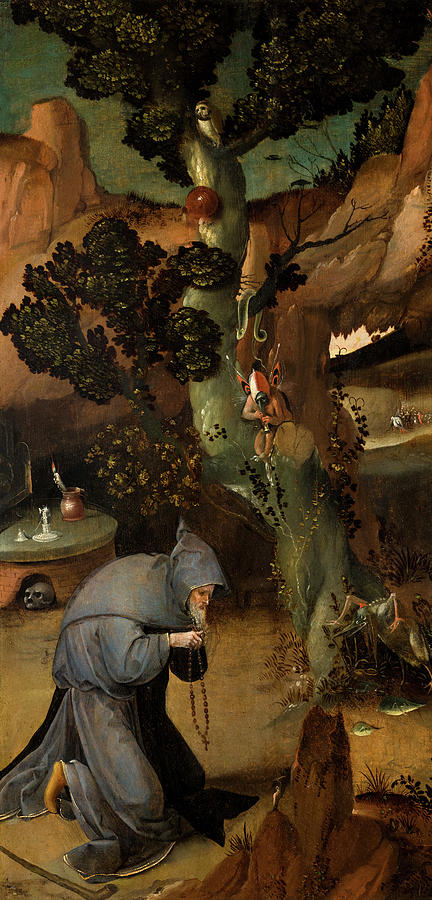8th December 2022
Advent With St Anthony: Penance
The second post in a series of blogs by Gabriel Stirling exploring the relationship between penance and Advent
In due course John the Baptist appeared; he preached in the wilderness of Judea and this was his message: ‘Repent, for the kingdom of heaven is close at hand.’ – Matthew 3:1-2
Of all the Christian Feasts, it is Christmas that has become most embraced for materialist ends. In many shops, Christmas goods were out on the shelves before All Saints Day. But like a voice crying out in the desert, the Saints remind us to reclaim Advent in the name of penance.
Penance is a big part of our Lenten preparations, but why should we embrace it ahead of Christmas? Should we not spend these next few weeks consuming material goods ahead of the big day, with moments of merriment intertwined?
On the contrary, it is an essential part of our conversion and a fitting virtue for this liturgical season.
In last Sunday’s Gospel, St John the Baptist recalls the prophet Isaiah, who reminds his followers to “prepare the way for the Lord”. With Christ’s ministry imminent, it is possible to get a sense of the urgency with which St John the Baptist preached. This command stands for posterity, and in Advent, we are likewise called to prepare for the Kingdom of God.
St Anthony of Egypt understood this urgency. Facing the torments of demons, he embraced a life devoted to fasting, prayer and poverty. The Egyptian hermit lived off bread, salt and water, sleeping on the bare floor. The demons could not cope with such devotion; they left St Anthony, recoiling in anguish.
Addressing his fellow monks, St Anthony reminded them that penance is an aid in spiritual combat against evil. “Demons”, he states, “fear the fasting, the sleeplessness, the prayers, the meekness, the quietness, the contempt of money and vainglory, the humility, the love of the poor, the alms, the freedom from anger of the ascetics”.
Unable to stand against a truly penitent soul, the Evil One cries out in defeat.
Advent is partly about preparing us for Christmas. But look beyond the twelve days of Christmas and can see the eternity that awaits us in Heaven. The liturgy in Advent emphasises the return of Christ at the end of this world, encouraging us to think beyond our life on earth. Penance puts this anticipation into practice.
There is no obligation for penance during Advent. But the Church still recommends it as a way of preparing for Christmas. The Eastern Orthodox refer to Advent as the Nativity Fast, further emphasising these penitential themes.
St Anthony’s dedication and faithfulness was extraordinary. But the lengths he went to should not discourage Christians. Not many of us will find our vocation as a hermit in the Egyptian wilderness. However, through penance, our souls are led away from evil and reconciled to God.

The Temptation of Saint Anthony, Jan Wellens de Cock
